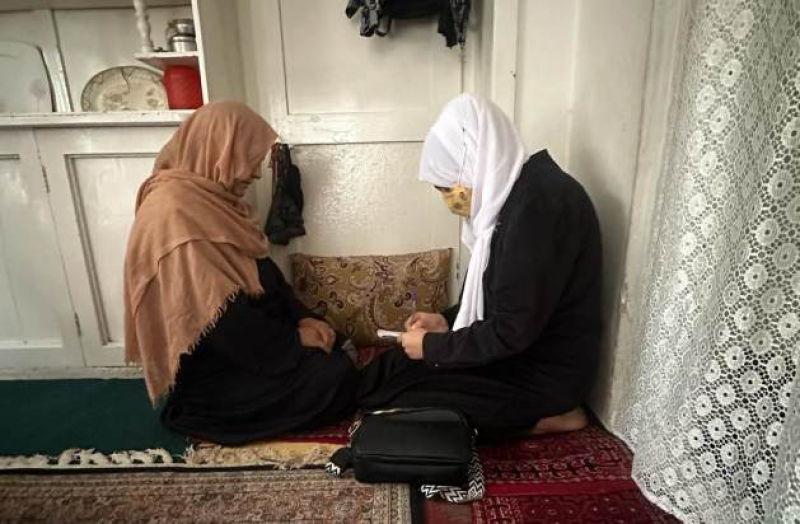- Gaza Ceasefire Not Enough as Children Continue to Die |
- Bangladesh Sets Guinness Record With 54 Flags Aloft |
- Gambia Tells UN Court Myanmar Turned Rohingya Lives Hell |
- U.S. Embassy Dhaka Welcomes Ambassador-Designate Brent T. Christensen |
- Survey Shows Tight Race Between BNP and Jamaat-e-Islami |
Afghan Girls’ Education Ban Fuels Rise in Forced Marriages

It is estimated that the Taliban have enforced over 5,000 forced marriages over the past four years. Thousands of girls have not only been stripped of their right to education but compelled into marriages over which they had no choice.
After the Taliban returned to power in Afghanistan, they banned girls’ education beyond the sixth grade. Human rights groups say this policy is a major factor behind the rise in underage and forced marriages involving Afghan girls.
Zarghona, 42, a widowed mother of four, says her three underage daughters were taken from her and forcibly married to former classmates. After schools and universities for girls were closed, all three daughters—who had dreamed of becoming nurses and midwives—were deprived of education and confined to their home.
“To prevent my daughters from becoming depressed, I sent them to a madrasa (religious school) near our house, on the advice of neighbours,” Zarghona said. They received religious education for a year, but things soon began to change.
“One day, a woman came to our house under the pretext of renting a room, and after that, her visits became more frequent. I gradually realised that she was targeting my daughters,” Zarghona recounted.
Eventually, a Taliban recruiter—one of the girls’ former classmates at the madrasa—followed them home and demanded that Zarghona marry her two younger daughters to his brothers.
“When I rejected their proposal, they threatened me, saying that if I didn’t agree, they would harm my son,” she said.
Under pressure, Zarghona was forced to consent to the marriages without her daughters’ approval.
“For me and my daughters, the wedding was not a celebration; it was a mourning ceremony,” Zarghona lamented. “I had no choice but to surrender.”
The weddings were not formal Afghan ceremonies but simple religious rites conducted by local mullahs. Her eldest daughter was not forced into marriage.
Afterwards, Zarghona was barred from seeing her daughters. She said she had to secretly send them money through prepaid mobile transfers, while their lives grew even more restricted.
“Each day brought more limits on how they dressed and where they could go. I couldn’t defend them, and my heart was never at peace,” she said, her voice filled with sadness and bitterness.
The older of the two daughters is now 19. She already has one child and is expecting another. The younger daughter has not yet become pregnant and was allowed to see a doctor, which enabled Zarghona to meet her secretly in the clinic’s waiting area. She said both daughters had lost weight, bore bruises, and looked terrified.
To escape her pain, Zarghona briefly went to Iran. But when she heard her daughters’ cries over the phone, she returned to Afghanistan.
“Less than three days after I came back, they beat me, my daughters, and even locked us inside our home,” she said.
Zarghona says she now has no contact with her daughters and fears for their safety. “All doors for seeking help are closed to me. The government is patriarchal, and no organisation supports women’s rights,” she said.
It is estimated that the Taliban have enforced more than 5,000 forced marriages over the past four years. Thousands of Afghan girls have not only been stripped of their right to education but also compelled into marriages against their will.
Human rights organisations and the United Nations have warned that the ban on girls’ education is fuelling domestic violence, poverty, suicides, forced marriages, and Afghanistan’s growing political isolation.
According to recent assessments by UNICEF and the World Bank, more than one million girls have been denied the right to education since the Taliban took control of Afghanistan.

